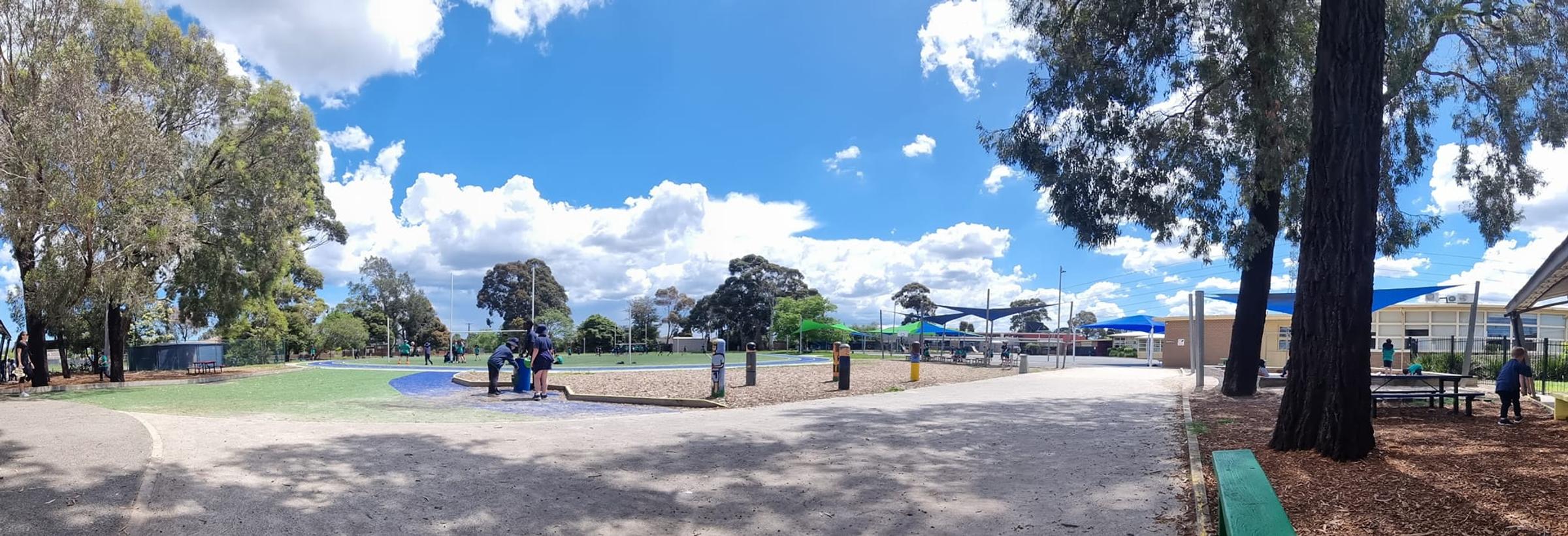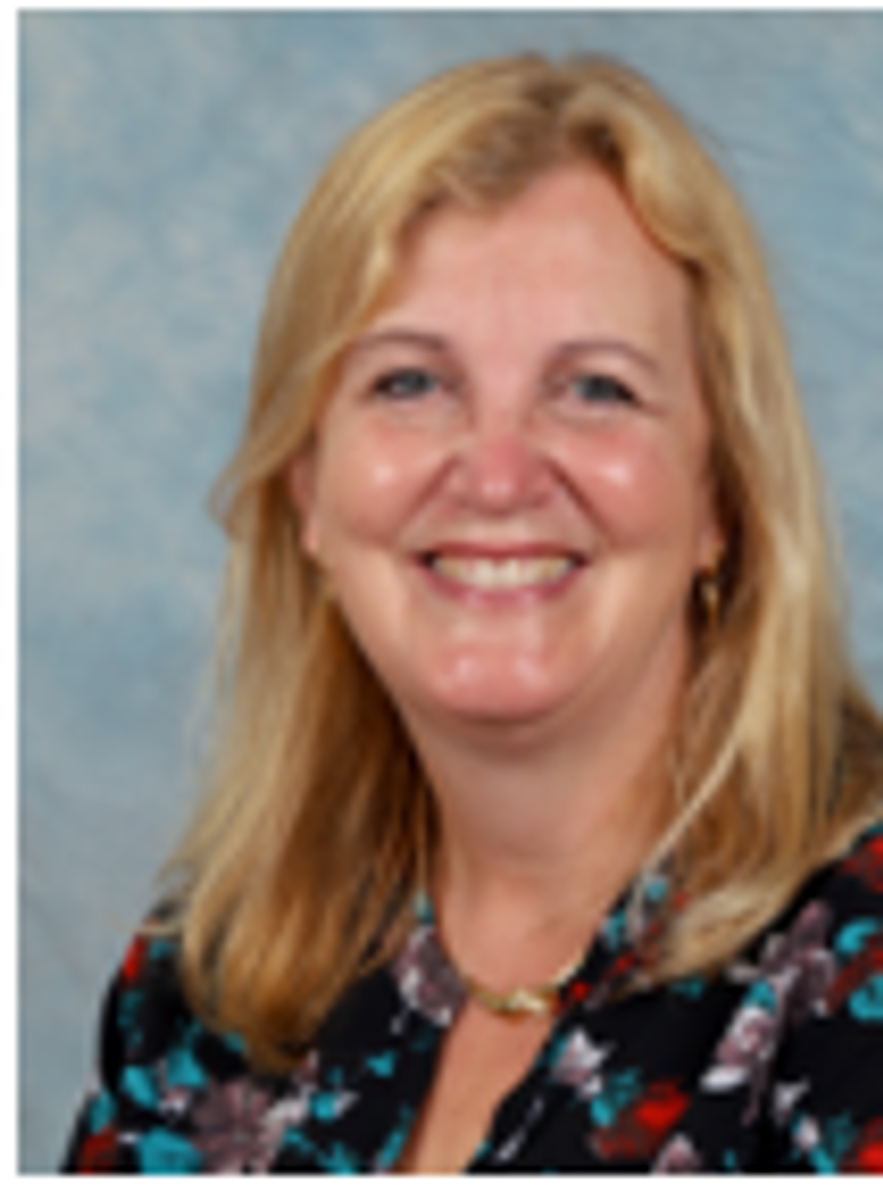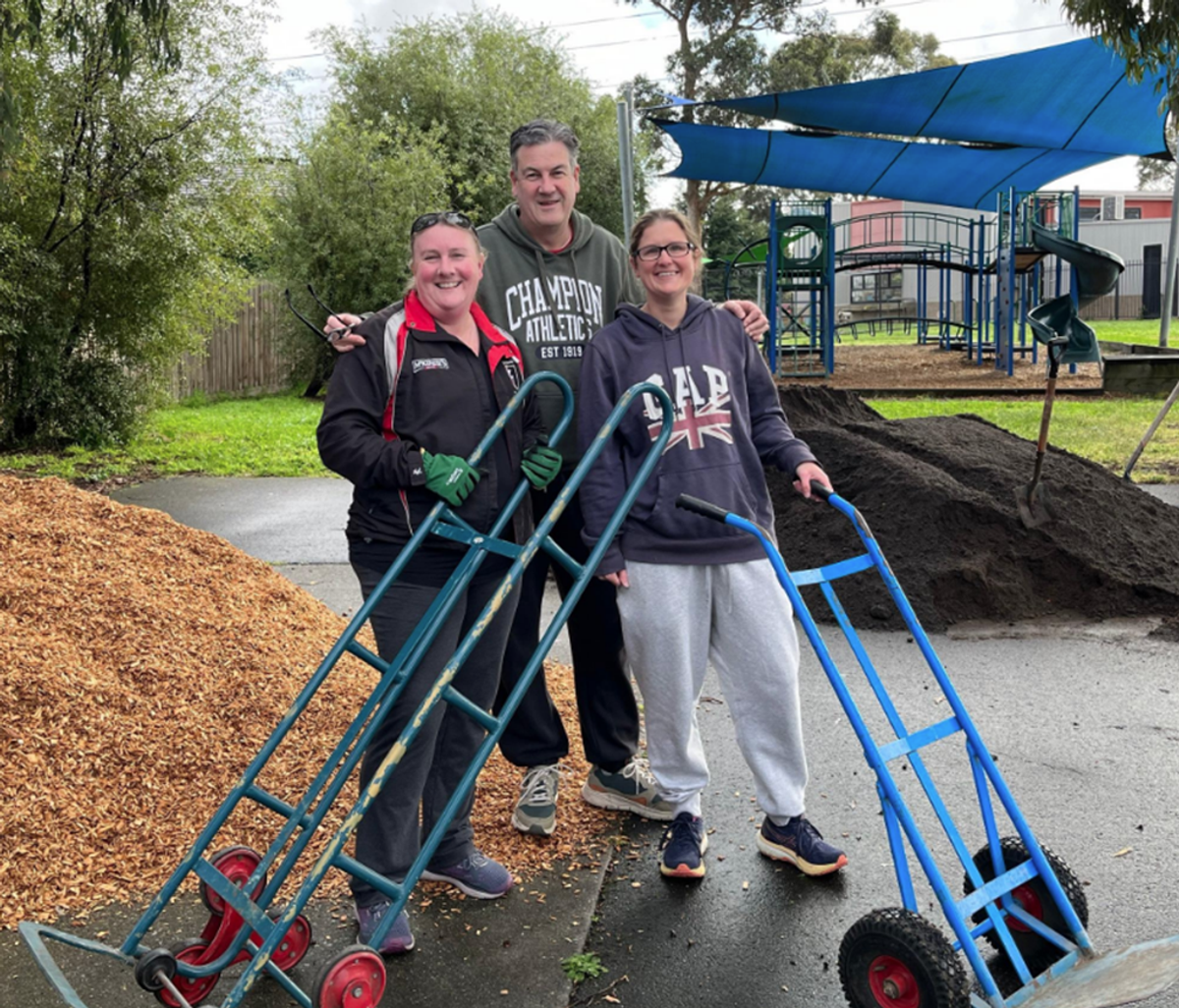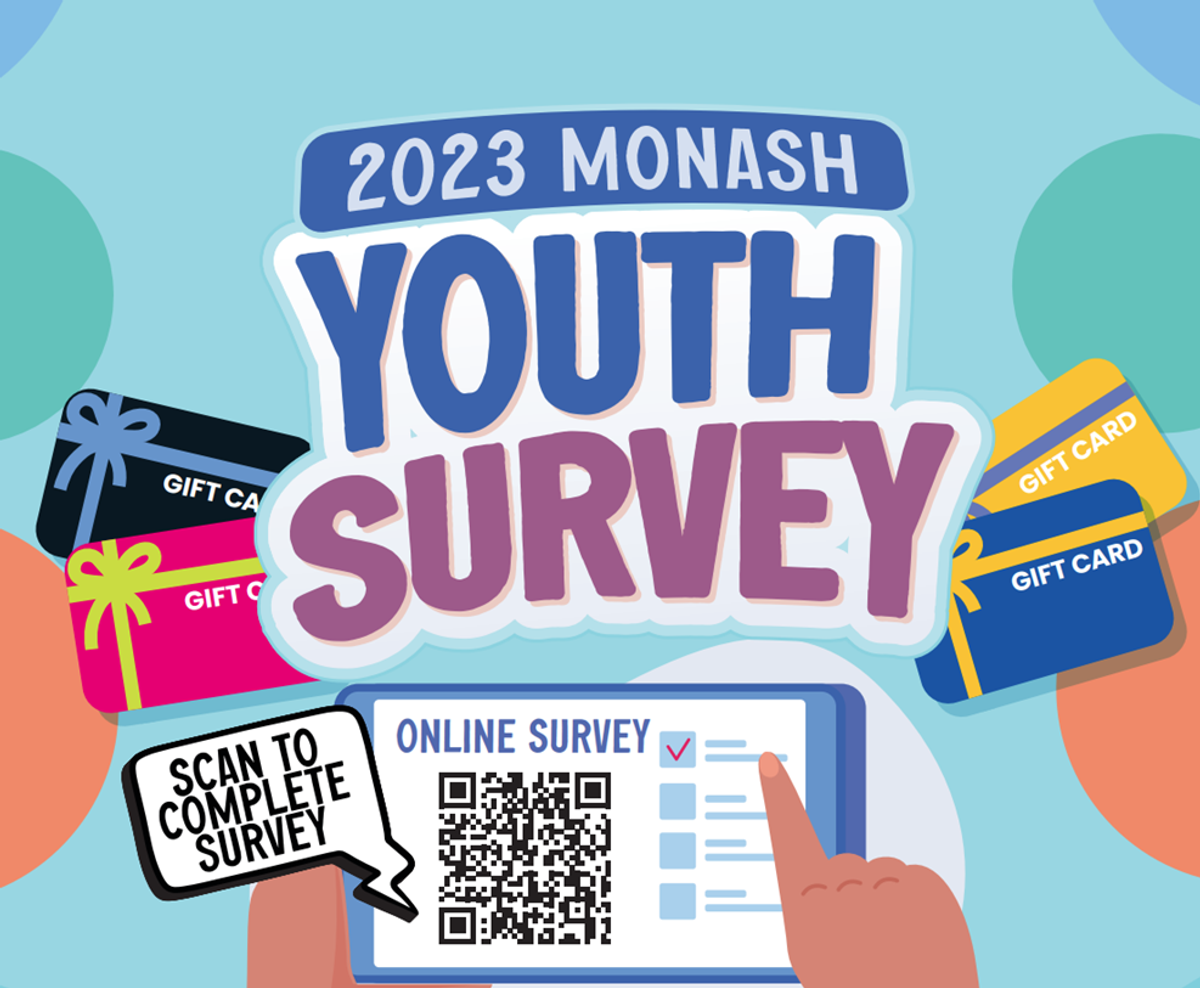Principal's Message
By Judith Drew

Principal's Message
By Judith Drew






Parents are reminded that the Staff Car parks at the front and rear of the school are not for parent parking. Parents with a valid disabled pass may use the designated space at the front of the school..
Principal Report
Book Character parade and Spelling Bee
On Friday (tomorrow), we have our Book Character parade and Spelling Bee. The Spelling Bee this year will have a Science theme- so students are encouraged to brush up on those science words if they are taking part!


Working Bee
We had a great group of families and staff assisting with our Working Bee on Sunday 13th August. The Frog Bos is looking wonderful, with so many new plants now installed. The playground has new soft fall spread around equipment, loads of furniture was moved from around the school, and the costume storeroom has had a massive clean out in preparation for our toilet upgrade and our whole school musical.
Our hardy team of volunteers also cut back hedges, cleaned gutters, weeded and tidied gardens, spread mulch, and so much more. Many thanks to the following families who helped out on the day:
| Padfield | Clarke | Mottershead |
| Lampugnani | Soso | Lewis |
| Savain | Summersett | Styczen |
| Polities |


Child Safe Standards
The new Child Safe Standards and Ministerial Order 1359 began on 1 July 2022. Albany Rise Primary School has clearly defined child safety strategies, policies, and practices to strengthen our culture of child safety and protect children from abuse. Last month, our school council completed extensive training in relation to the Child Safe standards. Below is some information about each of the standards that apply to all schools:
Organisations establish a culturally safe environment in which the diverse and unique identities and experiences of Aboriginal children and young people are respected and valued.
Child safety and wellbeing is embedded in organisational leadership, governance and culture.
Children and young people are empowered about their rights, participate in decisions affecting them and are taken seriously.
Families and communities are informed and involved in promoting child safety and wellbeing.
Equity is upheld and diverse needs respected in policy and practice.
People working with children and young people are suitable and supported to reflect child safety and wellbeing values in practice.
Processes for complaints and concerns are child focused.
Staff and volunteers are equipped with the knowledge, skills and awareness to keep children and young people safe through ongoing education and training.
Physical and online environments promote safety and wellbeing while minimising the opportunity for children and young people to be harmed.
Implementation of the Child Safe Standards is regularly reviewed and improved.
Policies and procedures document how the organisation is safe for children and young people.
https://ccyp.vic.gov.au/child-safe-standards/the-11-child-safe-standards/#TOC-1
Student Mobile phones and Smart Watches- privacy and safety
All Department of Education schools are required to have a Mobile Phone policy that ensures the safety of students, staff and community. At ARPS, students are required to hand in their mobile devices (ie. Any device that can make calls or take messages) at the start of the school day. This is part of our School Council approved Mobile Phone policy.
The policy also covers the appropriate use of Smart Watches. These devices can be set to ensure students are not taking photos, calls or messages during school hours, especially in class or when outside in the yard. Where a student in unable to set their Smart Watch to the appropriate privacy and safety settings, we ask that it not be bought to school, or must be handed in with other mobile phones and devices to the office at the start of the school day. It is not appropriate for students to be taking photos of other students (or selfies) during the school day, before or after school on the school grounds, using any device.
Similarly, messages sent from Smart Watches during school time (to and from home) are not appropriate.
A copy of the school policy can be found here: https://albanyrise-ps.vic.edu.au/about-us/policies/
More information about the Department of Education mobile phones policy can be found here: https://www2.education.vic.gov.au/pal/students-using-mobile-phones/policy
Monash Youth Survey


The team at Monash Youth and family services are in the 3rd week of their survey and they are hoping to engage more primary school aged children to complete the survey. They are hoping to gain more accurate results of the issues facing young people in this age cohort (10 – 12 years old).
A copy of the information poster is in this newsletter. The survey closes Friday 25 August.
Survey Home page: 2023 Monash Youth Survey | Shape Monash
Direct link to the survey (updated): 2023 Monash Council Youth Survey (qualtrics.com)
Parent Requests for Grades in 2024:
Can parents choose teachers?
• The short answer is no.
What can parents request?
• That their child might be with (or not with) another student based on education needs, or if there may have been a past incident or negative history with another student. Parents may request something like, having your child separated from a good friend to help them focus or have the opportunity to make new friends.
Who do I send my request to?
Follow this link and complete the online form: https://forms.gle/9wcG9mhRwGvN2bHv7
No later than Friday 13th October, 2023 (no exceptions)
How do we make grades for 2024?
We start by asking students to identify five ‘friends’ they might like to have in their grade for the next year. When we say ‘friend’, we mean someone who they would work well with, not always their best friend. Students have ample time and opportunity to be with their best friend, outside of school and classroom hours. Importantly we don’t guarantee these ‘five’ requests, usually students will get one or two of their ‘friend’ requests.
Sometimes not getting requests upsets students and their families. Invariably however, we find that students meet new friends (in their new grade) that they wouldn’t have met if we hadn’t encouraged mixing the grades, across their years at school. So, this is a deliberate strategy that supports students building their friendship groups across the years.
Who makes the grades?
Classroom teaching staff and specialist teachers all contribute to making the grades.
The Principal Class Team decides on the final grades. As a rule, we never make changes after the grades have been made. So please make your request before 13th October.
What factors do we consider when we make grades?
When we make grades, we consider things like: Academic capabilities / friendships / students’ behaviour. We want to ensure that grades have an even spread of boys and girls – we do not stream grades.
I trust this explains how we do this process; this is consistent with most schools.
Principal Conference Professional Learning
On Thursday last week, Michael Mottershead (Assistant Principal) and myself attended the Inner East Area Principal Forum in Doncaster. The forum provided an opportunity for school leaders to share best practice and learn more about new Mental health reforms and processes being introduced in schools across the state. The forum also considered current complex matters impacting schools, staffing and workforce management challenges, and approaches to child safety in schools.
During the forum, several schools showcased their data tracking tools, including how to use best practice approaches to monitor and follow up student attendance concerns. This was particularly of interest to us, as our CARE team at ARPS is carefully tracking and supporting families with relatively high absence rates (at this time of year, any student with more than 10 days absent for the year is considered ‘at risk’). The conference was a great opportunity to support the progress of many of our Annual Implementation Plan improvement strategies.

